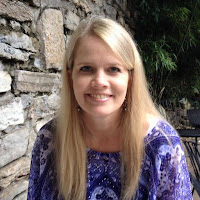"Be grateful for not what we have, but for what they are" - Jose Roland
We're standing in a cemetery looking out into the valley referred to as "the dump", where workers sift through the trash from the city to sell. As we look out, we are taken back by the immense growth of the trash in a mere 4 years, starting as a valley and quickly filling up to be even with the top where we stand. We are also distracted by the sun burning our skin and causing us to sweat. It is initially easy to feel pity on the garbage scavengers, living a life amongst the heat and garbage just to make it another day. One may also think, "Wow, I'm so glad I have been blessed with air conditioning and security in nutrition and finances". But, as we reflected, Jose Roland challenged this type of thinking. Rather than looking at these garbage scavengers as the "garbage scavengers", or the "poor" or the "others" that have lesser, resulting in us appreciating what we've been blessed with- what if we approached it a different way. What if, as we watched them work, we think about their past life that lead them to this lifestyle, and their present, of working day after day under the sun's burning rays amongst the people's unwanted leftovers. How amazing are they. Trekking on in the worst of conditions while being suppressed by the social and economic structure that prevents them from change their lifestyle, resulting in a seeming lack of hope. Yet, they wake up day after day, doing what they need to do to feed themselves and families. So much will and strength and dedication and love.
These reflections we had as a team lead me to my own reflections that challenge the motive for this trip. We didn't just come here to help the "others" who have less resources than we do. In fact, as we also discussed, the word "others" is problematic in itself, encouraging a further distance between ourself and those we serve. Rather, we came here to learn how to be incredible. We came here to learn how to grow and love and be thankful and have an incredible spirit for life, all without the materialistic things and resources that we've grown up with. We came here to learn how to be grateful for who they are. And let me tell you, they have so much to offer and we have so much to learn.
I feel excited and grateful and humbled to be in this beautiful country with its loving people. As we begin clinic tomorrow, I pray that with the short time I have with each patient, I can make even a portion of difference in the patient's life, of what this country and their people have already made on mine. Thank you to Jose Roland, the staff, and my team for keeping me centered and my motives in check as I begin the week in clinic.
Madelyn Hayes











